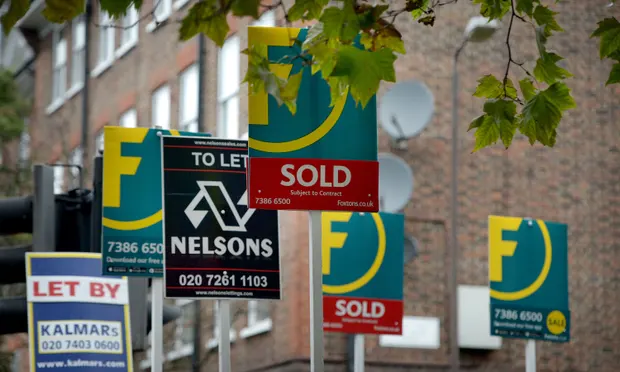The UK is experiencing the sharpest, fastest rise in interest rates since the 1980s, and markets and homeowners are braced for another increase from the Bank of England on Thursday, with an increase of at least 0.25 percentage points from 4.5% expected.
Many of the people who have got in touch with the Guardian are young couples and families, who are often worse affected than older homeowners by the interest rate hikes because they have repaid smaller parts of their often relatively large mortgages.
Steven, 52, and his wife have an interest-only mortgage. They bought their house 20 years ago, initially on an interest rate of 4.8%.
“But over the years, we’ve had to increase our mortgage for home improvements, and back then we had two incomes and no children,” Steven says. “We have a £480,000 mortgage remaining, and will probably end up paying around £19,000 extra per year just on interest. This is ruining people’s lives.”
Steven considers the Bank’s imminent decision to raise interest rates for the 13th time in a row a grave mistake, because millions of homeowners’ mortgages are yet to be affected – thanks to the popularity of fixed-rate mortgages, struck during the ultra-low rates era, that have yet to expire.
“Rate rises are fine in principle, but it’s the unprecedented speed with which they have been raised, leaving no time for people to plan, to regear. I’ve had to get myself a new job to pay for this, and only thanks to my new slightly larger salary we may not have to sell the house. These rate hikes are an inflationary measure in themselves, forcing people to go out and demand higher wages, after successive governments have encouraged home ownership for many years.”
Kirsty, a marketing professional, and her husband, a self-employed electrician, both 42, from Epsom in Surrey, earlier this month moved on to a new tracker mortgage at 0.34 percentage points above the base rate – in the hope that interest rates would fall in the coming months.
“It was a gamble,” Kirsty says. “We have two young daughters and are paying £2,300 a month in nursery fees, so three years ago we took out an interest-only mortgage, which kept our monthly payments at £524.
Should their interest repayments reach £2,000 a month, the couple will struggle to pay, Kirsty says. “Our mortgage and nursery fees are crippling us, and my husband and I both earn good incomes.”
James, 39, an insurance broker from north London, has been similarly caught out by rapidly rising interest rates, concluding that his best option is something he never dreamed he would be doing a year ago.
“We’re going to exit home ownership completely for now. Our five-year fixed-term loan comes to an end in September. With these rates, our repayments would rise by over £2,000 a month, from £3,700 to something in the region of £6,000. My wife and I are high earners but we have no option but to sell our house and go back to renting,” he says.
The couple will put their house, which they have been renovating for the past two years, on the market in a few weeks’ time. “It’s a shame. We stress-tested ourselves up to about 4.5% interest when we took out this mortgage, but interest rates above 6% on a £950,000 mortgage would be totally unaffordable. We’re likely to spend £4,000 a month on rent now for a couple of years, but that’s still cheaper than paying for a mortgage.”
He added: “This is the sixth house I’ve owned, and we certainly still believe in home ownership. But at the moment it’s just too crazy. We’d rather put our money into something other than property for now.”
Danny, 49, an IT consultant and father of two from East Molesey in Surrey, scrambled to get in touch with his mortgage broker after the Liz Truss and Kwasi Kwarteng mini-budget last September, six months before his deal would have expired.
“Our monthly repayments were £2,300. As rates started soaring, our broker was able to get us a five-year fixed deal at 3.6%, meaning we’d ‘only’ be paying £1,500 per month more, or £18,000 extra a year. I recall my hand shaking and feeling nauseous until I clicked ‘accept’ and received the confirmation email that the deal had gone through. Later that day this rate was withdrawn, and they just kept going up and up. Although the mortgage is now 50% of our take-home pay, we’re lucky: at 4% we’d have been forced to sell.”
Danny says his mortgage adviser tried to get in touch with all his clients after the mini-budget to alert them all to a mortgage cost crisis that would devastate the finances of millions.
“He told us people were in three categories: the ones that didn’t return his call and didn’t see it as important, the ones too shocked and paralysed to act, and the lucky ones – those who answered and acted promptly.
“It isn’t just Liz Truss who we are angry at, it is the 70,000 Conservative party members who selected her, people who are mortgage free and living in the home counties – people who don’t know and can’t imagine this pain.”


